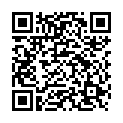|
|
|
| Module code: BAME18-06 |
|
|
9S (9 hours per week, accumulated) |
|
10 |
| Semester: 1 |
| Duration: 2 semester |
| Mandatory course: yes |
Language of instruction:
German |
Assessment:
Exam achievement: Written term papers
[updated 01.10.2020]
|
BAME18-06 (P311-0136, P311-0137, P311-0138, P311-0139) Health care management, Bachelor, ASPO 01.10.2018
, semester 1, mandatory course
|
135 class hours (= 101.25 clock hours) over a 15-week period.
The total student study time is 300 hours (equivalent to 10 ECTS credits).
There are therefore 198.75 hours available for class preparation and follow-up work and exam preparation.
|
Recommended prerequisites (modules):
None.
|
Recommended as prerequisite for:
|
Module coordinator:
Prof. Dr. Martha Meyer |
Lecturer:
Prof. Dr. Iris Burkholder
Prof. Dr. Johannes Gräske
Prof. Dr. Martha Meyer
Dr. Sindy Lautenschläger
[updated 17.07.2020]
|
Learning outcomes:
Introduction to EDP:
After successfully completing this module, students will have acquired basic knowledge of EDP and various standard programs in order to be able to use them routinely as their studies progress. The requirements and previous knowledge from the respective academic year will be taken into account here. In particular, students will be able to write scientific papers according to the Department´s guidelines using selected software (e.g. Word, Power Point). They will also be familiar with HTW-specifics regarding electronic data processing, e.g. wireless LAN or VPN client. Sudents will be able to use the CLIX e-learning system.
Academic Work Techniques I:
After successfully completing this module, students will understand how academic work is done and have experienced it in different contexts. They will be familiar with the tools required for scientific work and be able to use them. They will be able to employ places and instruments that hold relevant knowledge for scientific work in a target-oriented, qualified and result-oriented manner. They will have experience in writing scientific texts and have criteria for differentiating between scientific and non-scientific texts. They will be familiar with different types of texts and will be able to apply academic methods to their own work.
Academic Work Techniques II:
Consolidation of the basics, knowledge and techniques acquired in the first course: Selecting and analyzing suitable texts, preparing excerpts, avoiding plagiarism, methods and results, and archiving texts for study. Research in scientific (also English-language) literature. Students will be able to apply their knowledge appropriately, thoughtfully and criteria-based.
[updated 01.10.2020]
|
Module content:
Introduction to EDP:
1. Introduction
_ Wireless LAN and HTW-specific software use, CLIX e-learning system.
2. The Office package
_ Selected applications: e.g. WORD, PowerPoint
Creating scientific papers according to department guidelines (source management, bibliography, cross-references, annotations, lists of figures and tables, creating document templates)
Academic Work Techniques I:
1. Formulating questions
2. Structuring texts
_ Types of texts and their intention
_ The formal structure of texts
_ Publication parameters and the classification of academic texts
3. Prerequisites for dealing with literature
_ Libraries
_ Using libraries
_ Research: Searching for, finding and borrowing literature
_ Sources for literature searches
_ Using information
4. Scientific methods of citation
5. Evaluation of term papers
6. Poster presentations
Academic Work Techniques II:
1. Criteria-based searches
_ Selecting and sorting, foreign scientific texts
2. Processing texts:
_ Working out theoretical references and backgrounds, lines of argumentation, aims and methodological approaches
3. Representing different literature views
_ Weighing up different points, critical discussions and conclusions
4. Formal planning and construction
_ Editing texts and excerpting
5. Testing and editing
_ Creating your own scientific text forms
[updated 01.10.2020]
|
Teaching methods/Media:
Print and electronic media, slides, PC exercises
[updated 01.10.2020]
|
Recommended or required reading:
Introduction to EDP:
Current manuals from the Regional Computer Center for Lower Saxony (Regionalen Rechenzentrums für Niedersachsen - RRZN)
_ Word, current version, basics
_ Word, current version, advanced techniques
_ Word, current version, academic work and large documents
_ PowerPoint, current version, basics
_ PowerPoint, current version, advanced techniques
Academic Work Techniques I:
_ Bänsch A, Alewell D (2013). Wissenschaftliches Arbeiten. 11. akt. u. erw. Aufl. München: Oldenbourg
_ Bensberg G (2013). Survivalguide Schreiben: Ein Schreibcoaching fürs Studium. Bachelor-, Master und andere Abschlussarbeiten. Vom Schreibmuffel zum Schreibfan! Berlin, Heidelberg: Springer
_ Panfil E-M. (2011). Wissenschaftliches Arbeiten in der Pflege: Lehr- und Arbeitsbuch für Pflegende. 1. Aufl. Bern: Hans Huber
_ Plümper T (2012). Effizient schreiben: Leitfaden zum Verfassen von Qualifizierungsarbeiten und wissenschaftlichen Texten. 3. vollst. über-arb. Aufl. München: Oldenbourg
_ Preißner A (2012). Wissenschaftliches Arbeiten: Internet nutzen - Text erstellen - Überblick behalten. 3. grundl. überarb. Aufl. München: Oldenbourg
_ Sandberg B (2013). Wissenschaftlich Arbeiten von Abbildung bis Zitat: Lehr- und Übungsbuch für Bachelor, Master und Promotion. 2. akt. Aufl. München: Oldenbourg
_ Stickel-Wolf C, Wolf J (2013). Wissenschaftliches Arbeiten und Lern-techniken: Erfolgreich studieren - gewusst wie! 7. akt. u. überarb. Aufl. Wiesbaden: Springer Gabler
_ Theisen MR (2013). Wissenschaftliches Arbeiten: Erfolgreich bei Ba-chelor- und Masterarbeit. 16. vollst. überarb. Aufl. München: Vahlen
_ Ulmi M, Bürki G, Verhein-Jarren A, Marti M (2014). Textdiagnose und Schreibberatung: Fach- und Qualifizierungsarbeiten begleiten. Opla-den: Budrich
_ Voss R (2014). Wissenschaftliches Arbeiten leicht verständlich. 3. überarb. Aufl. Konstanz: UVK Academic Work Techniques II:
_
Chevalier B (2007). Effektiv lesen. Lesekapazität und Textverständnis erhöhen. Frankfurt/M: Eichborn
_ Eco U (2007). Wie man eine wissenschaftliche Abschlussarbeit schreibt. Stuttgart: UTB/C.F. Müller
_ Esselborn-Krumbiegel H (2008). Von der Idee zum Text. Eine Anleitung zum wissenschaftlichen Schreiben. Paderborn: Schöningh/UTB
_ Franck N, Stary J (Hg) (2011). Die Technik wissenschaftlichen Arbeitens. Paderborn: Schöningh/UTB
_ Meehan E (1995). Praxis des wissenschaftlichen Denkens. Rowohlts Enzyklopädie. Reinbek: Rowohlt
_ Rost F (2012). Lern- und Arbeitstechniken für das Studium. Wiesbaden: Springer VS
Additional literature will be announced in the course.
[updated 01.10.2020]
|


